Politics
Wings Over Scotland | Yelling at the tide
We figured someone had to at least try.
So in the light of this, we’ve sent a letter.
———————————————————————-
TO: Judge Susan Walker, President, Employment Tribunal (Scotland)
Dear Madam President,
I read with considerable dismay and alarm your response to a recent complaint from a Mr Ewan Kennedy regarding the conduct of Employment Judge Alexander Kemp in the case of Peggie vs Fife Health Board and Dr. B Upton.
Like Mr Kennedy, my concern is not with the judgment itself, which I am aware is subject to appeal, but with the specific content of the judgment, and in particular the much-publicised presence of a number of entirely fictional quotations from previous cases, which Judge Kemp used to form key aspects of his decision.
The explanation issued by your office in response to Mr Kennedy’s complaint is deeply troubling. It states:
“I am satisfied that Judge Kemp did not use generative AI in drafting the judgment. It is clear from my enquiries that the source of the erroneous quotes from Forstater and Ashers was an exchange of correspondence between Judge Kemp and a judicial colleague.”
His Majesty’s Courts And Tribunal Service can surely not consider “a big boy did it and ran away” to be an adequate response to such a grave matter. While not a legal expert, as far as I am aware it is unprecedented – I am unable to find a single example in recorded history of a judgment containing multiple entirely fabricated citations – and questions therefore arise which urgently require clarification.
(1) Why was Judge Kemp consulting a colleague (who had, presumably, not heard the evidence in the case) at all? What expertise could they bring to bear that he, having read and heard all of the evidence, could not?
(2) Who was this colleague? If the judgment has been significantly affected by someone other than the person whose name it is issued in, how can accountability and transparency and public trust in the judicial system be served by that person remaining anonymous? How are people to discern whether that person may have a conflict of interest, particularly given the ongoing political issues and sensitivities around this case and this topic more generally?
(3) How much of the judgment was the unnamed colleague, not Judge Kemp, actually responsible for or exercising influence over? If they fed him false quotations, what else did they tell him?
(4) Most importantly, how did this anonymous colleague come to produce these fabricated citations? Because clearly it is no more explicable or acceptable for he or she to have invented them than for Judge Kemp to have done so. If you are satisfied that Judge Kemp did not derive them from generative AI, are you equally satisfied that the anonymous colleague did not? If they did not, where did they come from?
It surely cannot be satisfactory for the public to be dismissively told that these highly significant and consequential quotations simply materialised from thin air.
Either (i) they come from cases other than those they were attributed to (which seems unlikely, as the quotes themselves were replaced in the subsequent versions of the judgment, rather than the citations being corrected), or (ii) they were produced by AI, or (iii) they came from an unknown third party and were not checked by Judge Kemp, or (iv) either Judge Kemp or the anonymous colleague invented them themselves.
Since any of the latter three explanations, and in particular (iv), would be extremely serious, it cannot be just left hanging as a possibility, for it would reasonably cast the integrity of Judge Kemp at a minimum into doubt, and even the entire judicial system, should it be seen or believed to be the case that the matter was being whitewashed.
It is also not clear from the response on which grounds the complaint was rejected. Section 6.1 of the complaints policy lays out the following possibilities:
Grounds (a) to (e) and grounds (g) to (l) seem obviously not to apply, leaving only ground (f), which would be consistent with this passage from the response:
“I do not consider that it supports a proposition that making a mistake in a judicial decision, whether an error of law or an error of the kind that has been identified in this judgment, can be – without more – deemed judicial misconduct”.
But the Guide to Judicial Conduct says as follows:
There are three basic principles guiding judicial conduct:
• Judicial independence
• Impartiality
• Integrity
To have used entirely fictitious citations, provided by an unnamed party and not checked by the tribunal judge, in coming to a judgment which was likely to prove controversial no matter what the decision, and in the knowledge that that decision was likely to be subject to intense scrutiny, must surely place any judge’s integrity and impartiality in question, absent a satisfactory explanation of how those fictitious citations came about. “It was a regrettable error” is at once a statement of the obvious, and manifestly inadequate.
As such, then, I respectfully request that your office either:
– provides greater clarity on who Judge Kemp corresponded with, what was said in this correspondence, and what the ultimate source of the fabricated quotations was,
or
– reconsiders its decision as to whether the fabrications amount to judicial misconduct.
I look forward to your response in the fervent hope that it will go some way to restoring public confidence over these events.
———————————————————————-
As ever, we’ll let you know if we hear anything.
Politics
Those demanding the Conservatives address their recent past could do with doing the same themselves
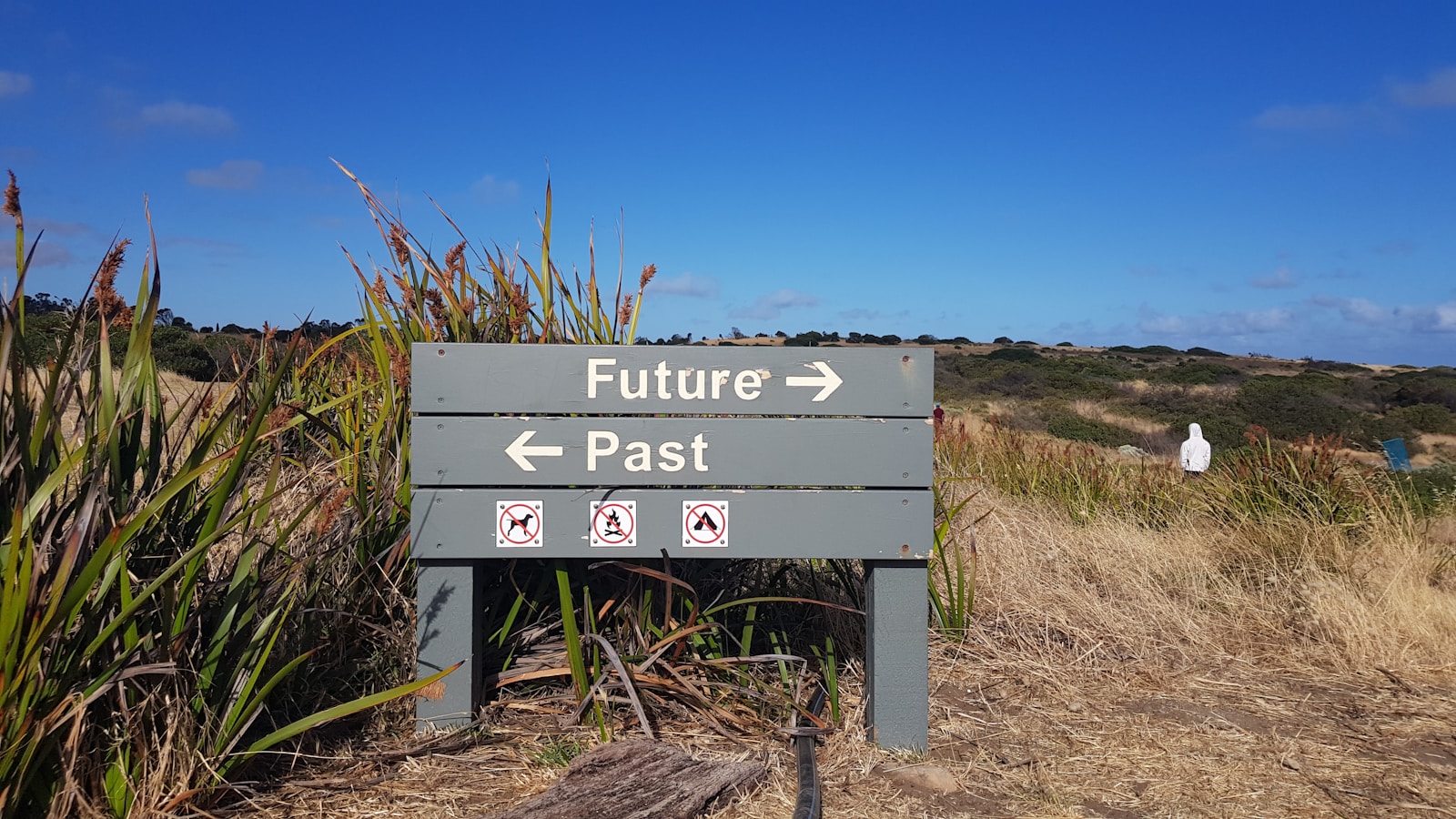
“The Reform Party is nothing but a hotchpotch, a mess, a corpse infested by waifs, strays, weirdos, charlatans and crooks, offering the whole political spectrum from the seriously deranged to the criminally insane”
It’s a spicy line to start with, but before Reformers blow a gasket and accuse me of libel there is something they should know. This line was written by satirist Mark Taverner, in his novel “In the Red” who died in 2007, eleven years before Reform UK were founded – as the Brexit Party – and was actually written in 1989.
In 1989 Nigel Farage was still three years from the founding of UKIP. He was then a commodities broker and metals trader and even he’d admit, probably with a grin, they were a gaggle who had their fair share of ‘charlatans and crooks’. But the quote cannot have meant his current political vehicle, first in the polls, and positioning itself for Government.
Besides, outwardly Farage is Teflon-coated to accusations his outfits are full of misfits.
His reaction in 2004 to the accusation from the then Tory leader, Lord Howard, that UKIP was filled with “cranks and political gadflies” was to have a tie made, adorned with both the tool and the insect, for members of a dining club of the same name, in Brussels!
He is, and always has been very good company socially, whatever you think of his politics. As is Lord Howard for that matter.
Attending one of these events at Nigel’s invitation twenty years ago was how I first met him. He wasn’t leader at the time, but chatting it became clear he would be. However the only ambition he’d admit to was his “own show on LBC, that would be brilliant. Did it before and loved it’” You can hear him saying it.
His ambition now is still to ‘lead Britain’s conversation’ – not from LBC’s studios but 10 Downing Street.
Many of Reform’s outriders have nearly as long an association with Farage. Reform UK may be a new insurgent party but many of its passengers and drivers – those not pushed under the bus for ‘disloyalty’ – are old hands in the insurgency business. Some of them demand the Conservatives don’t just recognise past failings, but crawl in ‘shame’. Arron Banks and newbie Zia Yusuf, a Tory until Aug 2024, like the language of snivelling abasement as the Tory price for sharing the same air!
Imagery aside I’ve said before, they and Tory defector Robert Jenrick make a challenge to the Tories that should not be airily dismissed but addressed. This site has seen Tories argue the same in order to avoid the risk of looking like they don’t need to.
It is bizarre to criticise the Tory Government as ‘a total failure’ whilst simultaneously welcoming some of its players into your ranks but there is still a feeling that – even if changing under Kemi Badenoch – the Conservatives haven’t changed enough or fully accepted why the electorate rejected them in 2024?
Suella Braverman says: “The truth is no Tory Party Leader has ever wanted to stop the boats or cut migration”.
Now despite the fact that measures brought in November 2023 by the Conservative government she’d just been removed from, have significantly cut migration – and if only someone like her had been in a position to do that, as, say, Tory Home Secretary – her defence is, the same as Robert Jenrick’s as Tory Immigration Minister; that they tried but Rishi Sunak wouldn’t let them.
It’s hard to utterly dismiss that, when the Conservative leader, who has put the entire party ‘under new management’ says similar; that she argued in Cabinet for certain courses of action but that she wasn’t ‘in charge then’ when challenged with why she didn’t do these things in Government.
Now in opposition, Badenoch and her shadow Cabinet argue they’re relentlessly focussed on the future. There’s a sound logic to that as people are crying out for vision. But having acknowledged the mistakes of the past, they’d have to accept it hasn’t landed as well as they’d have hoped. The argument about blame still continues on ConservativeHome, even this week.
Those who demand repentance have as many different things they want it for as people doing the demanding, but if the ‘new’ Conservative party has a shrewd idea of what the old party got wrong, then maybe it needs to say so more clearly. You own the future if you can leave the past comfortably behind, not burying it and hoping people forget. Kemi is improving her standing with the public but the brand still has a long way to go.
Reform also have a past. Much shorter but nonetheless instructive.
Farage said, early on, that he knew Reform would “come under more scrutiny than probably any other party ever has”. He wanted to make this sound unfair or conspiratorial but it’s neither, nor true. They are getting exactly the same scrutiny, which they deserve as serious contenders to govern.
They jettisoned their 2024 manifesto within a year, because they recognised it was economically illiterate. They supported the scrapping of the two child benefit cap – for months backing billions of spending on top of an already ballooning welfare budget – only to U-turn on it yesterday and supporting the ‘disastrous Tories’ who’d brought it in and wanted to keep it.
Reform councils, like many others, are putting up council tax having said locally they’d cut taxes, despite denials at the top. In an emulation of Trump’s America, they instigated DOGE into local authorities. Predictably, Cllr Paul Chamberlain, one of their cabinet members in charge of such cuts at Kent County Council, told the FT:
“We made some assumptions that we would come in here and find some of the craziness that [Musk’s] Doge found in America … and that was wrong, we didn’t find any of that.”
In Warwickshire the nineteen year old leading Reform on the council – age not in itself the weakness some make out – has admitted “I had to learn very quickly” before complaining about the ‘blockages’ officials had put in his way. Doge-meister Yusuf has yet to visit Warwickshire. These are less ‘failings’ and more a wakeup call that promising the moon often hits hurdles higher than bravado and slogans can overcome in delivery. Reform’s solution to national problems they claim they, uniquely, can solve, too often involve just bravado and slogans.
On Monday Farage launched a telling social media attack on Charlotte Cadden, Conservative Candidate in the Gorton and Denton by-election. A police officer for 30 years who wants “a proper inquiry on grooming gangs” and “to get rid of carbon taxes“, both policies he agrees with, instead highlighted a fun run she did 15 years ago, as somehow a symbol of the entire Conservative now. But don’t anyone ask him about things he did fifty years ago.
Conservatives are not going to quit – in Gorton or anywhere else – to help a party that insists it wants to destroy them, but the tragedy of trading blows over the past of both parties is that it distracts from directing ire and fire at the party in charge of the present.
The past, is Labour’s well of sour motivation. Deepest dipper is the Education Secretary whose entire ethos is to attack everyone, including her own party’s legacy on education, to settle scores from when she was a school girl in an A-line skirt.
The soul raison d’etre for the now farcical Chagos deal – that no amount of phantom billions ‘won’ in China will pay for – is to apologise, to the wrong people, for the ‘colonial’ past. Labour demand an apology for the mini-budget, an issue Badenoch has addressed more than once, and soemthing Farage supported, but Peter Mandelson’s past is apparently a closed book. Saw nothing, heard nothing, did nothing is not going to save Starmer and Morgan McSweeny was never going to bite the hand that fed, and is now punching him and his boss in the teeth.
L P Hartley once wrote “the past is a foreign country; they do things differently there”. Everyone in this now crowded political landscape is trying to express the same, but it might be an idea for all to visit it occasionally and say ‘you know what? We got that wrong’.
That goes for all politicians not just the ones you want it to.
Politics
Robert Jenrick And Suella Braverman Accidentally Vote To Scrap Child Benefit Cap
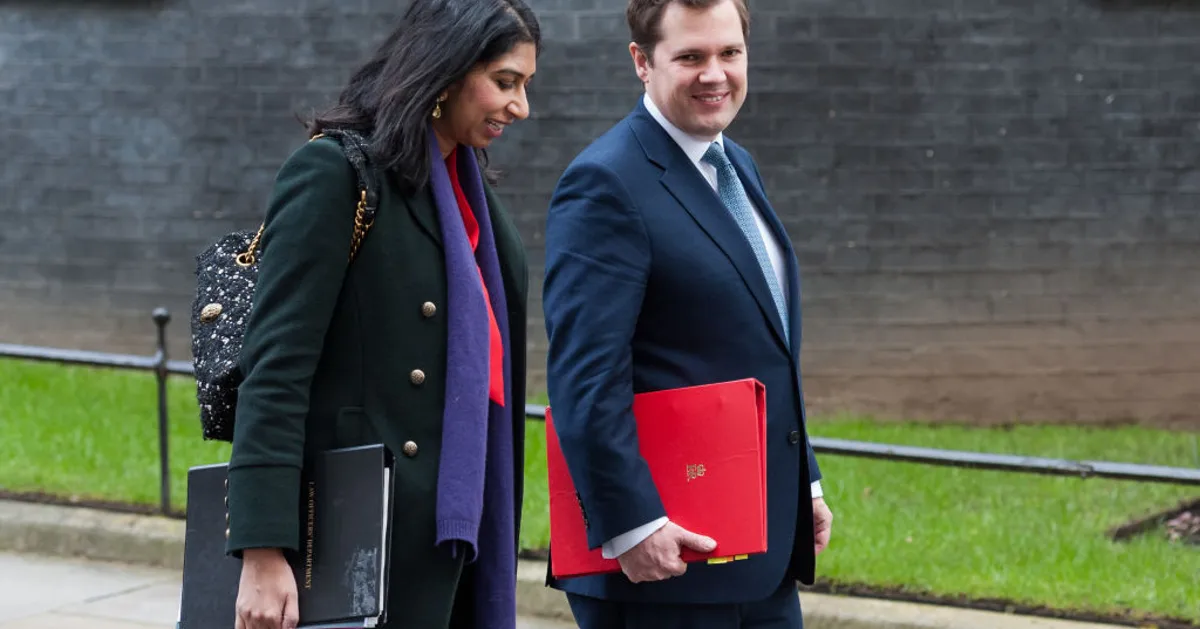
Reform UK MPs Suella Braverman and Robert Jenrick voted to scrap the two-child benefit cap – even though their party is now in favour of keeping it.
The bungling pair accidentally walked into the wrong voting lobbies in the House of Commons on Tuesday night.
The five other Reform MPs who took part voted against scrapping it, in keeping with what is now their party’s policy.
One Labour MP said the mix-up showed they “couldn’t run a bath, let alone a country”.
Reform UK sources initially tried to claim that it was a “genuine mistake” by Braverman and Jenrick – who both defected from the Tories last month – and that their votes had not been registered.
However, official Commons records show that the pair did vote along with Labour, the Lib Dems, the SNP, DUP and Plaid Cymru to scrap the cap.
The motion to end the cap, which was introduced by the last Tory government in an attempt to slash the welfare bill, was passed by 458 votes to 104.
One Labour MP told HuffPost UK: “Reform’s attempt to spin this by saying neither MP registered a vote is just nonsense.”
Others took to social media to mock Jenrick and Braverman.
When the government announced last year that it was scrapping the two-child cap, Reform leader Nigel Farage said it was “the right thing to do”.
“We believe for lower-paid workers this actually makes having children just a little bit easier for them,” he said.
However, Farage now says the cap should only be lifted for households where both parents are British and in full-time work.
On Tuesday, he said Reform would use the money saved to fund support for pubs.
Politics
Clark Vasey: Competence won’t win back Reform voters but a Conservative agenda focused on working people will

Clark Vasey is co-founder and Executive Director of Blue Collar Conservatism.
This is part 1 of 2 articles on Re-Introducing Blue Collar Conservatism.
As political activists, we naturally like political campaigns framed as a battle of ideas with a clear mission to transform things for the better. It’s why, despite the increasing passage of time, we still look to transformative Conservatives like Margaret Thatcher and Ronald Reagan. They defeated the left both at the ballot box and, most importantly, they defeated the left in office.
However, most elections do not look like that. Instead, they hinge on persuading voters that one side will be more competent than the other. David Cameron’s pitch accepted much of Tony Blair’s ‘modern Britain’; we would just do it better. Theresa May was ‘strong and stable’ until voters concluded she wasn’t and almost let in Jeremy Corbyn. Even ‘Get Brexit Done’ was about replacing a political class unwilling to get it done with one that would.
This mindset shaped candidate selection too. How often have we heard that Joe or Jane Bloggs has a background in business, the military, or whatever, ‘they will make a great MP’? This led to a tendency towards managerialism.
By the end of our time in office, too many of our entrenched problems stemmed from Blair-era reforms we left untouched or shamefully expanded.
Today, we face a Labour Government of astonishing incompetence. Its unimaginative socialism offers only higher taxes and more intervention, each compounding the last problem it created.
Kemi and her team are in another league when it comes to capability. However, we must resist the temptation to make the ‘competence’ of one group of people over another our central pitch. It will not work.
The end of the two-party system has changed the rules. Labour’s failures no longer send voters back in our direction. Labour’s collapse in the polls shows people understand how utterly useless they are, but less than two years ago many drew a similar conclusion about us. Reform’s supporters share our diagnosis of Labour; they are just not looking to us as the alternative.
We rightly point out how much worse things are since we left office. But the state of Britain in 2024 was not a winning formula. Talking about getting back to what we were beginning to achieve in government will fall far short, especially when you consider the voters we need to convince.
Labour and the left are our enemy, but if we are serious about winning, we must attract significant votes from Reform. There are too many of these voters for us to write off and there is no fantasy centrist coalition to replace them with.
More than a decade ago, Esther McVey and I founded Blue Collar Conservatism because we believed working-class voters had been taken for granted by Labour. We recognised that they shared our values and stood to benefit most from a genuinely conservative agenda. At the time, the leadership was still more interested in chasing metropolitan liberals, but we predicted that these voters would shift right.
2019 ought to have been a historic moment of realignment. Instead, many of these voters ended up feeling just as let down by us. The rightward realignment has continued but now largely sits with Reform.
Labour understands that working people are no longer part of its base. Its coalition is now a fraying mix of metropolitan left-wingers and state dependents. Labour’s approach to Reform has little to do with winning back lost Reform voters and everything to do with attracting the votes of Liberal Democrats and Greens. Keir Starmer’s increasingly unrestrained Europhilia will not appeal to Labour’s Brexit voting former heartlands but might convince enough Liberal Democrats to help block Reform.
Reform polling in the low 30s is uniquely blockable and they know it. Reform has squeezed Labour to its metropolitan core and there is no more juice in that direction. To build a base that can withstand tactical voting, Reform needs to take support from us in significant numbers. Recent developments have made that abundantly clear.
Our challenge is the inverse, but with greater numbers: persuading Reform voters to trust us.
We will not do this by attacking them. We will do it by presenting a better, clearer alternative. We once talked about ‘love-bombing’ Liberal Democrats (I know, I hate that phrase too), but a similar mindset is required here. We must show Reform voters that we understand their frustrations and yes, their scepticism of us. We must convince them that we will do what we say we will do, and that never again will we take right-wing votes to pursue left-wing outcomes.
We all have family and friends who have gone over to Reform. Many of those who have been involved in Blue Collar Conservatism are now prominent Reform figures. Their values are fundamentally the same as ours. They want what we want: a country that works.
We just need to convince them that we are the best vehicle to deliver an agenda that works for ordinary working Brits.
Blue Collar Conservatism exists to do exactly that: to reshape Britain into a country that works for working people by delivering a programme of national renewal built on a relentless focus on jobs and opportunity, and ensuring Britain’s place in the world by maximising the potential of its people.
In Part Two, I will set out what this means in practice.
Politics
Katie Lam: Some think Britain is ‘going down the sewer’ – but those that built them have a lesson for how to avoid that fate
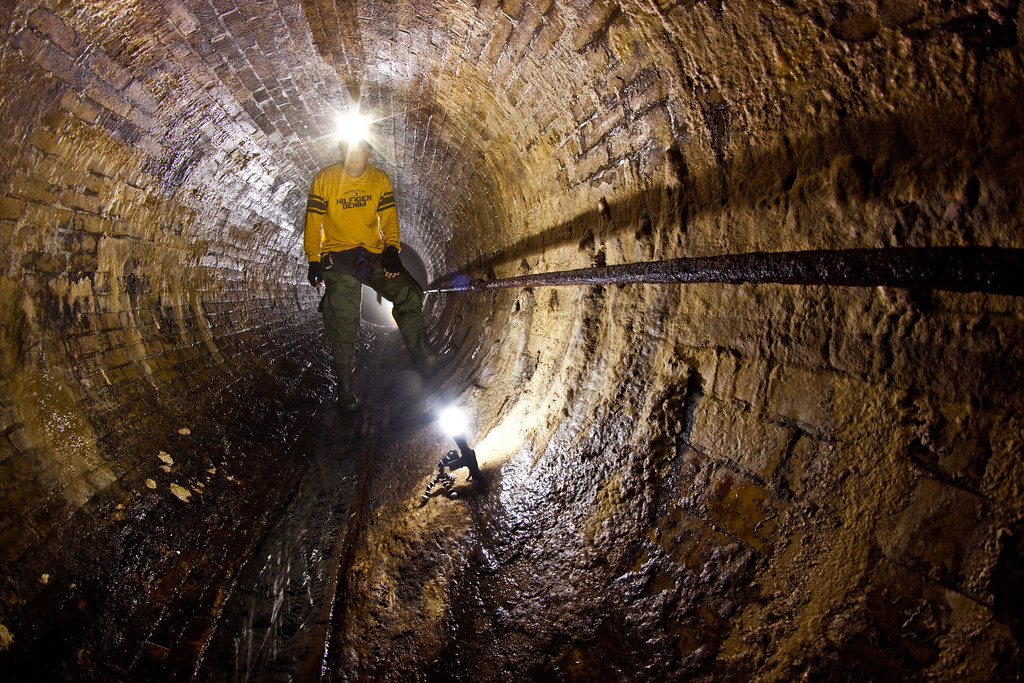
Katie Lam is a shadow Home Office minister and MP for Weald of Kent.
When politicians talk about building more infrastructure, it can often seem like a fairly abstract ambition. But this couldn’t be further from the truth.
In January, thousands of people across Kent and Sussex, including in my constituency, lost access to running water after a “freeze and thaw event” caused pipes to burst. In other words, water infrastructure installed by the Victorians was unable to cope with predictable wintertime temperature changes after well over a century of use. Our infrastructure failed; the result was people in Britain, in 2026, forced to queue up for bottled water in order to wash themselves and cook their food.
The modern world rests on infrastructure.
The relative comfort in which we live was made possible by the building of previous generations. They created a world in which we were able to take roads, railways and reservoirs for granted. It is thanks to their work that we can travel easily around the country, heat our homes and, most of the time, rely on being able to turn on the tap to get clean, running water.
But this inheritance, impressive though it is, can’t last forever. It must be maintained and built upon. For many of my constituents last week, the consequences of failing to do that were all too real.
And what a failure it is. According to the National Audit Office, at the current rate of work and investment it would take 700 years to replace our ageing water system. In the meantime, outages like those seen in Kent and Sussex this week will, sadly, be commonplace. The promise of improvement in seven centuries’ time provides little comfort when you find yourself bathing in bottled water.
We can expect far more of this. We haven’t built a reservoir in this country since 1992, meaning that our rain-soaked island is likely to face water shortages in the decades ahead. Even if we’d built enough reservoirs, most of the country would still be relying on Victorian-era pipes, which bulge and burst as the temperature changes.
And our water system isn’t the only casualty of time and neglect. We haven’t built a new motorway since 2003, despite rising congestion. We haven’t built a new nuclear power station since 1995, helping to cause the highest industrial energy prices in the developed world. The London Underground, a marvel of Victorian ingenuity, was built so long ago that the whole system now risks overheating. The plan seems to be to encourage people to carry a bottle of water on hot days.
In his memoirs, Lee Kuan Yew, the visionary founding father of Singapore, talked of taking his island nation from third world to first. It can feel like Britain is slipping in the opposite direction, from first world to third.
Yet we should not allow our current direction to define our future destination. Things can improve, and they must, just as they have before. The blockers which have been put in place to stop us from building on our inheritance were self-imposed; they can be removed. The drive and dynamism that will be required to turn our country around is considerable but is within our grasp.
After all, we’ve done it before. By the time of the Great Stink of 1858, the Victorians were still relying on the skeleton of the Roman sewage system. London’s population had grown forty times larger, and no effort had been made to manage this growth. Much of the capital was, in effect, an open sewer.
Within just six years, an entirely new sewage system had been opened, which would go on to be expanded over the next decade. By 1875, London had 1,300 miles of new sewers, and a whole new system designed to manage the city’s water and waste. In turn, the embankments built to support the new sewage system allowed the opening of new roads, new public gardens, and the Circle Line of the London Underground.
By contrast, since the Victorians laid the modern sewage system, the country’s population has merely trebled – an enormous challenge to be sure, but a smaller proportionate increase than from the Romans to the Victorians by some margin. We can, and should, also avoid making this challenge greater by adding hundreds of thousands of people to the population each year, as we have done for the past few decades.
There are plenty of rules which will need to be changed, and regulations which will need to be slashed, if we want to achieve anything on this scale again. Yet for even these changes to be made, we’ll first need to rediscover our national sense of ambition. We will need to believe that we are a country which can solve its own problems, rather than shrugging our shoulders as we stumble from crisis to crisis. We will need to recognise that we have our own part to play in creating the world that we want future generations to enjoy.
I believe that we can, and that we will – because while many of our politicians may have failed us, the British people are still the best in the world.
Politics
Albie Amankona: If Tory moderates are serious then ‘socially liberal, fiscally conservative’ must die
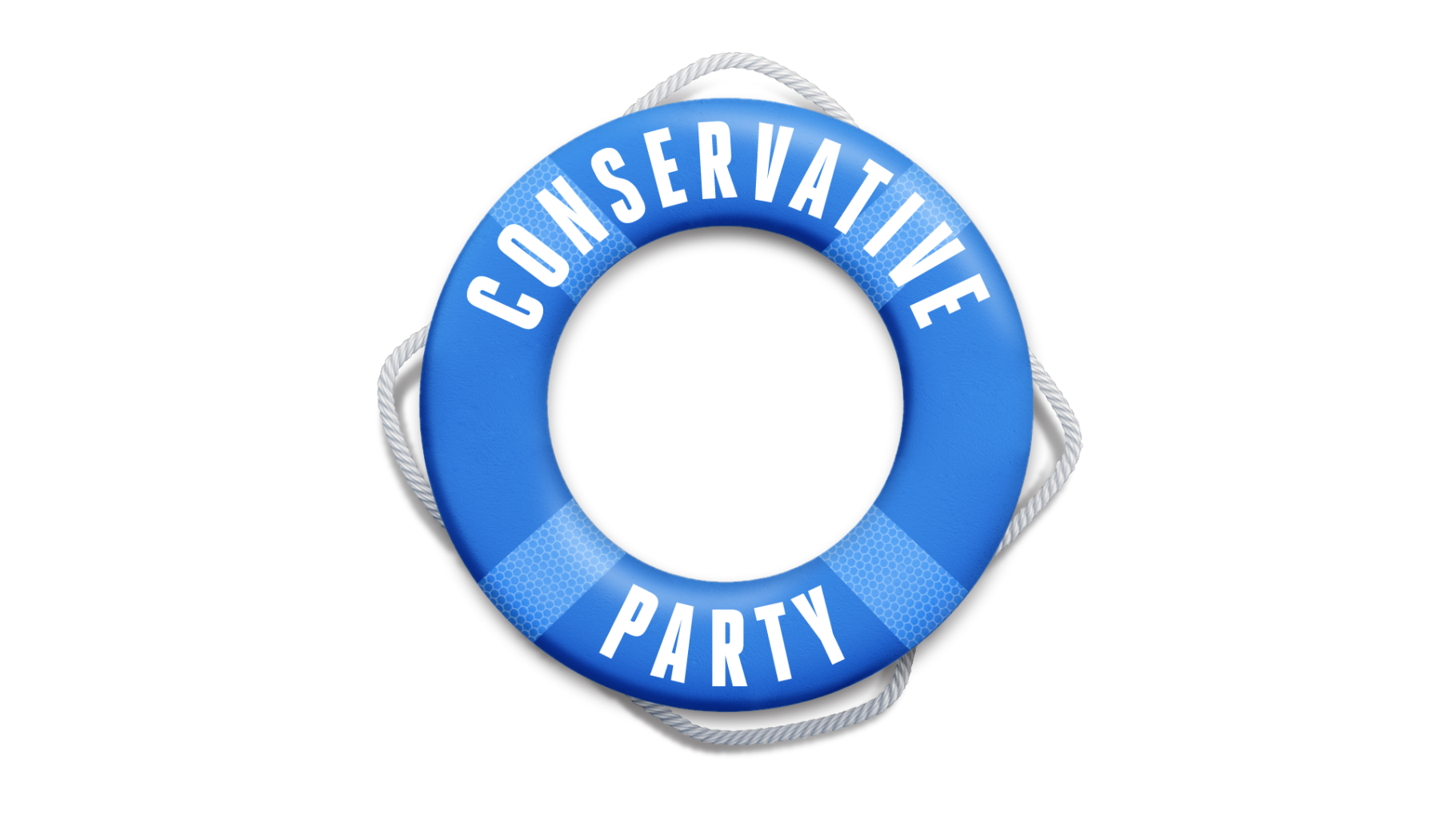
Albie Amankona is a broadcaster, financial analyst, vice-chair of LGBT+ Conservatives, and co-founder of Conservatives Against Racism.
Ruth Davidson and Andy Street are right: there are millions of “politically homeless” voters who feel unrepresented, disconnected and unconvinced that British politics is capable of governing competently. Their new project to win those voters back to the centre-right is therefore a necessary intervention.
But if this moderate movement is to be taken seriously, if it is about delivery rather than posture, then it must kill “socially liberal, fiscally conservative”.
That slogan no longer describes a governing philosophy. It disguises the central failure of modern One Nation conservatism: a preference for tone over outcomes.
Street and Davidson talk about competence, place, civic pride and bread-and-butter economics. All welcome. But competence without clarity is fragile. Civic pride without common culture and customs is hollow. The “politically homeless” voters Street and Davidson want to attract are not looking for atmospherics. They are looking for solutions to problems they can feel.
Nowhere is this clearer than immigration and integration. These cannot be parked in the name of civic harmony. A genuinely restrictive immigration policy and a muscular integration strategy are not optional extras. They are the foundation of any place-based conservatism. You cannot talk credibly about wages, housing, public services or social cohesion while refusing to confront the single pressure voters most clearly identify.
Here is the irony, the “wet” moderates delivered more right-wing outcomes than the faux “dry” hardliners who followed them.
Net migration was lowest this century from the actions of “moderate” home secretaries like Theresa May and James Cleverly. By contrast, the Johnson era’s self-styled culture warriors presided over record-high immigration after Brexit. The Boriswave was a direct result of policy choices made under Boris Johnson, Priti Patel, and Suella Braverman. Damian Green did more to cut migration than Robert Jenrick.
The same inversion applies on spending. The period of greatest fiscal restraint came under “moderate” chancellors and prime Ministers like David Cameron and George Osborne. With welfare cuts too deep even for veteran right-winger, Iain Duncan Smith. They weren’t perfect, but they were materially more fiscally conservative and more right-wing in outcomes than what followed.
The post-Boris Johnson Tory administrations, enthusiastically cheer-led by many of today’s Reform defectors, did not govern as dry Thatcherites. They cosplayed as them. On immigration, spending and the size of the state, the Cameron-era leadership was more right-wing on virtually every measurable metric.
Yet One Nation conservatism refuses to own its right-wing history, paralysed by a fear of sounding “mean” or “cruel”. That confusion is sustained by continued reliance on “socially liberal, fiscally conservative”, a slogan that made sense two decades ago but is now obsolete.
The culture war it was designed to defuse is over. Four female leaders. Two non-white leaders. Equal marriage settled law. The British conservative movement, Reform UK included, is now tolerant by default: multiracial, secular, gender-agnostic and gay-friendly.
Today, “social liberalism” no longer means tolerance. It denotes an institutional ideology that treats disagreement as harm, enforcement as cruelty and group identity as a substitute for merit. It is expressed through anti-meritocratic DEI bureaucracies, race and gender essentialism, the policing of language and thought, fictional net zero economics, and an intolerance of dissent dressed up as compassion. One Nation conservatism has been slow and timid in confronting this, defaulting to the defence of institutions that are now openly hostile to conservative instincts.
Voters did not defect because language was insufficiently kind. They defected because outcomes were incoherent. Rhetoric dialled up but immigration surged, bureaucracies ballooned, net zero drifted into fantasy, and the justice system forgot the “justice” part. Post-Brexit vibes politics produced delivery failure.
Davidson and Street are right to stress civic pride and cohesion. However, cohesion is not generated by reassurance. It requires rules, expectations and enforcement. Integration is not a polite request. It is a requirement.
May, hardly a populist, argued for leaving the ECHR while Lee Anderson was still a Labour councillor. Borders, law and sovereignty are not culture-war distractions – they are the preconditions for a free society.
In three consecutive leadership contests, One Nation candidates failed to reach the final two. That is not bad luck or factional bias. It is a rejection of moderation without muscle.
If Street and Davidson want their project to succeed, they must say clearly what they are prepared to abandon. Killing “socially liberal, fiscally conservative” is necessary but not sufficient. What replaces it must be more than a change in language. It has to be a set of choices.
Clear positions on the questions that decide whether a governing philosophy exists at all. What does a genuinely restrictive immigration policy look like in practice? What does enforcement mean? What institutions need shrinking rather than managing? Where does the state step back, and where does it enforce?
What does “fiscally conservative” mean in a world of debt dependency, ageing populations and rising defence costs. What gets cut, what gets reformed, and what is protected? How is planning liberalised in practice, and homes actually built? How is infrastructure delivered without chronic overspend and pointless overbuild?
What integration actually requires? What the obligations of citizenship are? What the state will no longer tolerate? Until those questions are answered, One Nation conservatism remains a temperament rather than a governing philosophy. Pleasant, well-meaning, but electorally weightless.
If Street and Davidson’s new centrist conservative clan is to be taken seriously, “socially liberal, fiscally conservative” must die. What replaces it must be pragmatic, radical and unapologetically conservative
Politics
Michael Wolff Challenges Trump to Sue After Epstein Allegation
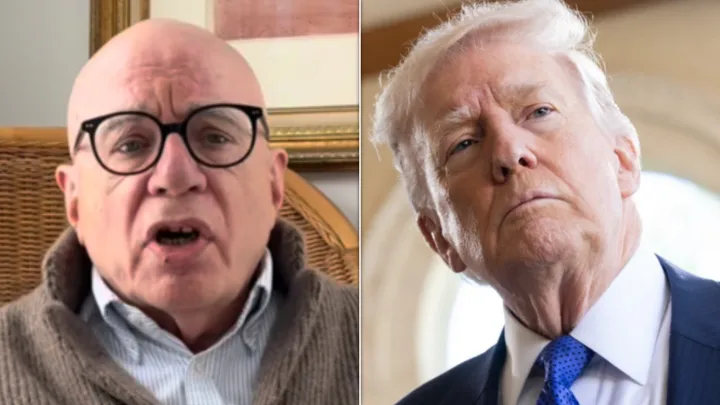
Author Michael Wolff challenged Donald Trump to fulfill his threats to sue him, declaring on social media that if the president sparks a legal battle, it will publicly open a Pandora’s box over his unsettled ties to Jeffrey Epstein.
Trump has repeatedly suggested he could sue Wolff in the wake of the Department of Justice releasing millions of pages of files last week related to the investigation into the late convicted sex offender.
While speaking to reporters aboard Air Force One on Saturday, Trump floated the idea of taking legal action against Wolff, alleging the author and Epstein were “conspiring” against him since the release of a February 2016 email in which Wolff suggested the serial rapist was the “bullet” that could terminate Trump’s 2016 presidential campaign, according to Fox News.
Trump followed up his condemnation of the writer in a Truth Social post on Monday, referring to Wolff as a “SLEAZEBAG lying ‘author’” who “conspired in order to damage me and /or my Presidency.”
In an Instagram video posted on Monday, Wolff responded to Trump’s threats.
“I woke up this morning and found that last night Donald Trump had threatened to sue me again,” he said. “I think this is the third or possibly fourth time the president of the United States has threatened to sue me.”

Wolff defended himself, saying, “Yes, I tried to encourage Jeffrey Epstein in any way I knew how to come forward with what he knew about Donald Trump.”
He went on to mention his book “Siege,” in which he said Epstein discussed his “breakup” with Trump “over a piece of real estate in Palm Beach.” Wolff then said that “three weeks after that book was published, Epstein was arrested by Donald Trump’s Justice Department.”
The author referenced Trump’s wife, Melania Trump, saying in the video that she threatened to sue him after he “said she was part of Epstein’s social circle, which we can see in these latest emails that have been released.”
“This lawsuit gives me the power to subpoena Mrs. Trump, Mr. Trump and all their friends,” Wolff continued, before sharing that he raised $800,000 through GoFundMe to fund the case.
Wrapping up his message, Wolff straight up told Trump to “bring it on.”
“I believe that if the American public knew the real nature of Donald Trump’s long relationship with Jeffrey Epstein, they would turn away in horror and revulsion. So sue me. Let’s sue each other,” he said.
Wolff added: “I have nothing to hide, but, Mr. President, you surely do.”
Watch Wolff’s message to Trump below.
Politics
The shameful disinformation over the Gaza death toll

The way much of the media handled last week’s ‘news’ about Gaza’s death toll is nothing short of shameful.
On 29 January, left-wing Israeli newspaper Haaretz reported, based on an anonymous source, that the Israel Defence Forces (IDF) had ‘accepted’ the Gaza Health Ministry’s (GHM) estimate of 70,000 Palestinian deaths since October 2023. Immediately, major outlets ran headlines declaring an Israeli ‘u-turn’ – after all, officials had long dismissed such figures as Hamas propaganda. Journalists and commentators, who had spent two years lambasting those sceptical of the GHM figures, rushed to claim vindication. Among them was Mehdi Hasan, who crowed on social media that after every Gaza war, Israel ‘accepts the Palestinian death toll’. Hasan implied that those of us who dared ask questions about it were engaging in gaslighting.
However, as is often the case, there appears to be a significant gap between media narrative and reality. To begin with, the IDF has outright denied Haaretz’s report. LTC Nadav Shoshani of the IDF Spokesperson’s Department stated the reported 70,000 figure ‘does not reflect official IDF data’. In other words, the widely promoted ‘admission’ was based on an anonymous background briefing – not an official, verified statement. The IDF emphasised that any formal report would be issued through the proper channels. Unsurprisingly, this caveat has been conveniently ignored in much of the news coverage.
Even so, the framing of this story has been highly misleading. The debate over the death toll was never about whether tens of thousands have died in Gaza. Everyone agrees the war has been devastating. The real dispute, both then and now, concerns the composition of that death toll, the credibility of its sources, and how many of the dead were Hamas combatants or victims of Hamas’s own actions, rather than civilians killed by the IDF. In addressing these questions, the media’s performance has been appalling.
From the outset of the war, the Hamas-run GHM became the main source of casualty figures in Western reports. By early 2024, the GHM was claiming that about 70 per cent of the dead were ‘women and children’ – a statistic cited endlessly by sympathetic journalists and activists. This claim was always nonsense, and is easily disproven just by looking more closely at Hamas’s own data. Most of the casualties were, in fact, male, with a disproportionate number of those being of fighting age. But you wouldn’t know that from reading the BBC.
Those of us who dared to scrutinise the Gaza death toll were not denying that civilians were being killed. We were simply emphasising that the figures came from a party directly involved in the conflict. A study of international coverage between February and May 2024 found that a staggering 84 per cent of major media reports failed to distinguish between combatant and civilian deaths when citing Gaza’s death toll. Ninety-eight per cent of reports cited Hamas’s numbers, while only five per cent referenced Israeli estimates. Tellingly, one in five articles didn’t even attribute the death toll to a source, presenting Hamas’s tally as if it were an uncontested fact. Meanwhile, on the rare occasions that Israeli figures were mentioned, they were often treated with outright scepticism. This blatant double standard undoubtedly laid the foundations for today’s rampant disinformation.
Over a year ago, the Henry Jackson Society published my team’s analysis on the GHM’s fatality lists. The findings were damning. We discovered that Hamas’s lists were riddled with errors and non-combat deaths. Individuals’ ages and genders were frequently misreported (men were listed as women, adults as children) in ways that artificially inflated the count of female and child victims. The lists included people who had died before the war – including those killed by Hamas’s own actions (such as by misfired militant rockets). All of these were lumped together as if Israel was directly responsible. Unsurprisingly, the published toll made no mention of any Hamas combatants whatsoever. Every single fatality was implicitly presented as a civilian who died as a result of Israeli strikes – a near-impossible scenario in a conflict of this nature.
We also observed evidence that the Gazan death toll encompassed natural deaths, which would have occurred regardless of the war. Gaza, like any society, experiences deaths from illness and old age every day. These do not stop during wartime. But the GHM’s methodology appeared to include all manner of deaths in the conflict tally. It even used a public Google Form for individuals to self-report deceased relatives. Given that compensation is offered to families of the deceased, this was clearly a system prone to duplicate entries or misuse. Our qualitative analysis found that these lists were unreliable, and the media should never have treated them as definitive.
Initially, the Palestinian representative in London angrily dismissed our warnings. But a few months later, Hamas discreetly took action that proved our point. In March 2025, the Gaza Health Ministry released an updated casualty report that had quietly removed around 3,400 names that appeared on previous lists. At least a thousand supposed child victims were among those deleted. The likely explanation is that these were duplicate entries, errors, or otherwise invalid records that Hamas erased once they were identified. Our paper was validated: the lists contained thousands of errors.
Our research identified a consistent pattern in conflicts in Gaza: Hamas hides its combatant casualties during the fighting, only acknowledging them much later (if at all). This war has been no exception. Hamas officials have largely remained silent on how many of their militants have perished. Meanwhile, the IDF has consistently reported its estimates of enemy fighters killed. By late 2025, the IDF stated it had killed at least 22,000 Hamas and allied combatants in Gaza. It reported that the fatalities were roughly one-third combatant, two-thirds civilian. This ratio, though tragic, has been consistently maintained in Israeli military briefings. It is a far cry from the ‘nearly all civilians’ picture painted by Hamas.
Can we say for sure that the IDF’s own militant body count is reliable? Of course, Israel is itself an actor in the conflict. But there is historical precedent to suggest its figures are more reliable. After the 2014 Gaza war, independent analyses of casualty lists, along with statements made by Hamas officials, revealed that hundreds of the dead were combatants. Though during the 2014 conflict, Hamas had insisted that almost all fatalities were civilian, the numbers ended up roughly aligning with Israeli estimates.
The same dynamic is unfolding now. While Hamas’s public statements still account for zero militant deaths, behind closed doors, Palestinian sources have acknowledged thousands of militant losses via their Telegram channels. Our report found that Hamas privately pegged around 6,000 of the dead as their fighters. While this number is far lower than Israel’s estimate, it offers stark proof that the GHM’s narrative is a fabrication.
It is important to remember that the GHM figure includes everyone who died as a result of the war. This covers not only airstrike victims, but also people who died from secondary effects like lack of medical care, starvation, being trapped under rubble, or strikes from stray rockets launched by Hamas or Palestinian Islamic Jihad. While Gazan officials claimed over 440 deaths from malnutrition or starvation during the war, Israel firmly disputes that any deaths from hunger ever occurred. The IDF notes that Hamas likely counted individuals with severe illnesses as ‘starvation’ victims. The upshot remains that the death toll of 70,000 is a composite of many categories of deaths which, though devastating, cannot be attributed entirely to Israel.
The heated debate that followed the Haaretz report completely overlooks these vital distinctions. Instead of engaging with the complex reality of Gaza’s death toll, much of the press chose self-congratulation. ‘See, even Israel now admits 70,000 died – we told you so!’, they have insisted. But what exactly did they ‘tell us’? Many of these outlets spent two years obscuring the very issues I have outlined. They parroted Hamas’s GHM without caveats, failed to verify the figures, and overlooked the astonishing lack of combatants listed among the dead. They were quick to doubt Israeli statements about militant casualties, yet slow to acknowledge clear evidence of Hamas’s number-fudging. When the GHM quietly removed thousands of names from its records in March 2025, did CNN or the BBC make it headline news? Of course not. That ‘small inconvenience’ was largely left to niche researchers and think-tanks to expose.
Personally, I do not enjoy saying ‘I told you so’. The loss of tens of thousands of lives in Gaza is a reality, and nothing can lessen that human tragedy. However, facts matter, especially in wartime. I warned over a year ago, in detail, that the Gaza death toll was being reported without proper care: that it included errors, double counts, natural deaths and propaganda; that the frequently cited civilian-versus-combatant breakdown was unreliable; and that eventually, the truth about the underreported militant casualties would emerge. I was correct on all points.
Shame on the world’s media for ignoring these red flags for so long. Shame on them for allowing a terror group’s unverifiable claims to shape the narrative, and for smearing those who raised legitimate questions as bad-faith actors. The press should be scrutinising both sides’ claims rigorously, not selectively echoing whichever figures fit a simplistic morality tale we wish to tell ourselves.
The mishandling of this issue has done a huge disservice to both truth and history. Gaza’s dead deserve to be remembered accurately, not reduced to pawns in a propaganda contest. We can mourn the innocents lost while still insisting on an honest accounting. We should not fail them by obscuring the reason their lives were cut short in the first place: a war that was started by the terrorists of Hamas, in which they did everything they could to place civilians in harm’s way.
Andrew Fox is a former British Army officer and an associate fellow at the Henry Jackson Society, specialising in defence and the Middle East.
Politics
Republicans are freaking out about Hispanic voters after a Texas upset
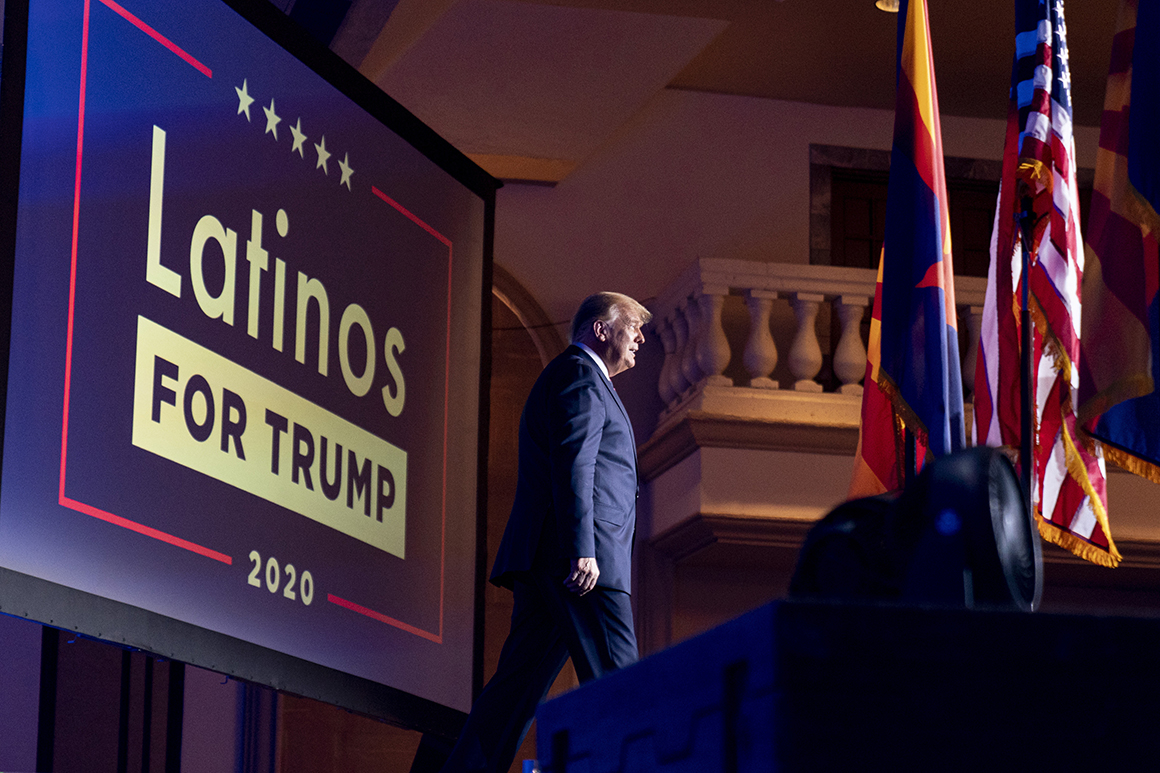

Republicans are in full-out panic mode over their plunging support with Hispanic voters after losing a special election in a ruby-red Texas district over the weekend.
On Saturday, a Democrat posted a 14-point victory in a Fort Worth-based state senate district President Donald Trump had won by 17 points in 2024, a staggering swing that was powered by significant shifts across the district’s Hispanic areas.
It’s the clearest sign yet that the GOP’s newfound coalition that propelled Trump’s return to the White House may be short-lived. Many Republicans are warning the party needs to change course on immigration, focus on bread-and-butter economic issues and start pouring money into competitive races — or risk getting stomped in November.
Polling already showed that Republicans were rapidly losing support from Hispanic voters. But the electoral results were a confirmation of that drop.
“It should be an eye-opener to all of us that we all need to pick up the pace,” U.S. Rep. Tony Gonzales, a Republican from a majority-Hispanic district in South Texas, said in an interview. “The candidate has to do their part, the party has to do their part. And then those of us in the arena, we have to do our part to help them as well.”
Sen. Ted Cruz (R-Texas) told reporters Tuesday that the election was a “very concerning outcome.” Texas Lt. Gov. Dan Patrick posted on X that the results should be a “wake-up call for Republicans across Texas. Our voters cannot take anything for granted.” Florida Gov. Ron DeSantis said “a swing of this magnitude is not something that can be dismissed.”
Taylor Rehmet, the Democrat who flipped the state Senate seat over the weekend, made huge gains with Hispanic voters amid national pushback to the Trump administration’s aggressive immigration enforcement tactics and widespread economic frustration across demographic groups.
Ahead of the election, Texas Gov. Greg Abbott — an immigration hardliner who bused migrants to Democratic-led cities during the Biden administration — said the White House needed to “recalibrate” on its immigration crackdowns following the shooting of Alex Pretti by an immigration officer in Minneapolis.
“That imagery coming out of Minnesota in the last few days has had a huge impact on not only Hispanic voters, but swing voters, independents in Texas and around the country,” said Texas GOP consultant Brendan Steinhauser. “What’s transpired there has definitely led to a bit of a political backlash.”
As Republicans panic, Democrats are feeling a renewed jolt of optimism after they swept statewide races last year in Virginia and New Jersey. They believe they found a winning formula with Rehmet, whose working-class biography as a union leader, Air Force veteran and Lockheed Martin machinist resonated with voters, along with his narrow focus on local issues like maintaining public school funding.
Tory Gavito, president of Democratic donor network Way to Win, said she received excited texts from several major donors over the weekend after the win. “Knowing it’s a wave year, this just adds a little bit of more wind in our sails,” she said. “It’s not just a question around Texas, it’s a question around Texas and Mississippi and Alabama and what does this mean for lots of places.”
Texas Republicans have the most to worry about of any in their party about a major Hispanic snapback towards Democrats.
Hispanics are now the largest ethnic group in Texas, making up 40 percent of the population. Trump carried Latinos in the state in 2024, exit polls showed, a massive swing from earlier elections, and Republicans had been making especially strong gains with rural, more conservative Hispanic voters in the Rio Grande Valley. But as Texas Democrats look to win a U.S. Senate election for the first time since 1988, they’re eyeing an opportunity to pull those voters back in.
“They are leaving in droves and going in the opposite direction,” said Javier Palomarez, president and CEO of the U.S. Hispanic Business Council. “This is a warning sign.”
And Texas Republicans also banked on retaining at least some of their newfound Hispanic support when they redrew their Congressional map last year, creating several majority-Hispanic districts that Trump would have carried by double digits last year. That includes rejiggering district lines for two top GOP targets, Democratic Reps. Henry Cuellar and Vicente Gonzalez, as well as a third district outside San Antonio.
“They’ve banged three of these five new Republican seats on a demographic that Democrats were never able to turn out for 30-40 years, ” said GOP consultant and Trump critic Mike Madrid, referring to young, Hispanic male voters. But now, Trump’s hardline immigration policies have “angered and upset them.”
Samuel Benson and Alex Gangitano contributed to this report.
Politics
Reform UK treasurer named in Epstein files
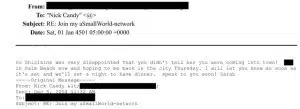
Reform UK treasurer and ‘property tycoon’ Nick Candy appears in the latest Epstein files. More than appears, in fact. Serial child-rapists and Israeli agents Jeffrey Epstein and Ghislaine Maxwell were so enamoured of him that Maxwell was “very disappointed” that Candy didn’t let her know he was coming to town.
Furthermore, they were eager to arrange dinner together before he left:

Candy also asked for Maxwell’s email address. Afterwards, he received congratulations as (apparently) Maxwell congratulated him on something and gushed about how great it is on “Jeffrey’s island”:


Candy also received a message from one of Maxwell’s friends, whose name is redacted – but may, based on a missed redaction in a different email, be called ‘Sarah’ — perhaps Sarah Kellen, an interior designer and Epstein associate. ‘Sarah’ wished Candy “exciting adventures” and hoped to see him again soon, even if he never got to know her surname after their first party meeting:

As Middle East Eye has pointed out:
Kellen was in her early 20s when she met Epstein, and she was named as an unindicted co-conspirator in the 2008 plea deal in which Epstein pleaded guilty to procuring a child for prostitution. But her legal representatives have said Kellen was one of Epstein’s victims.
Kellen was seemingly the sender of the ‘Ghislaine is disappointed’ email at the top of this article.
Harry Eccles, who discovered the emails in the latest release, asked Reform UK for comment. None appears to have been sent. Eccles also pointed out that emails referred to Candy’s company selling a property for Epstein and therefore making money from him:
Jed Garfield, is a known associate of Nick Candy.
Here it seems ‘Candy’ is arranging a first, and second visit to a house with the help of Jed Garfield liaising directly with Jeffrey Epstein pic.twitter.com/c5XnCOVGvQ
— Harry Eccles (@Heccles94) February 3, 2026
And here Epstien and Jobor Y are discussing Candy’s tax court case. pic.twitter.com/0u3URlWPkA
— Harry Eccles (@Heccles94) February 3, 2026
The emails also show that Candy had Epstein’s personal number:
The above forwarded to Epstein personally pic.twitter.com/ZrmZUvxq35
— Harry Eccles (@Heccles94) February 3, 2026
And they show both that Maxwell was involved in the property discussions. Epstein said he had spoken with Candy himself. In addition, Epstein was a fan of Candy and his brother:
Epstein about Candy: ‘no I spoke to him’ pic.twitter.com/cKBi6oeqOk
— Harry Eccles (@Heccles94) February 3, 2026
Jeffrey Epstein about the Candy Brothers: ‘I like both of those guys’ pic.twitter.com/wPS0VEyzo7
— Harry Eccles (@Heccles94) February 3, 2026
And – of course – the disgraced ex-peer and senior Starmer adviser Peter Mandelson had his fingerprints on it, too:
Epstein Residence plans – on the Epstine Library has C Candy (copyright Candy) as the title. pic.twitter.com/22LgL2JVYI
— Harry Eccles (@Heccles94) February 3, 2026
Reform and its treasurer have questions to answer about the association. Somehow it seems unlikely that they will.
Featured image via the Canary
Politics
Reform are unaccountable fucking grifters

Never a party to miss a vapid appeal to populism, Reform UK have announced plans to cut beer duty by 10%. Except, how do they plan to fund such a feat? Well, by reintroducing the two-child benefit cap, of course.
Under Reform’s new commitment, the party would gradually phase out business rates altogether for UK pubs. Incidentally, they’d also plunge around 350,000 children back into poverty, and 700,000 into deep poverty.
The fact that a mainstream political party can suggest something like this without being spat on immediately by everyone in range indicates that something is deeply wrong with our country. I just don’t have a better way to say that.
Facts about taxes, as if that’s the problem here and not Reform
In Rachel Reeves’ autumn budget, the chancellor unveiled plans to hike business rates for pubs by 76%. This would boil down to additional costs of around £4,300 a year, after the current freeze ends.
However, on 27 January Labour announced that it would reverse course. Starting in April, pubs will now receive a 15% cut to new business rates bills, along with a two-year real-terms freeze.
Reform MP, and general shithouse, Lee Anderson stated that:
The loss of one pub is not just the loss of livelihood for a landlord, or the loss of a local employment hub. The loss of one pub is a loss to all of us as inheritors of a tradition dating back to Roman rule.
He went on:
Yet the Conservatives, and now Labour, have facilitated the closure of thousands of pubs over the last decade. Any contrition they show is false.
As things stand, beer duty – i.e., tax – averages out at around 49p a pint, although that varies according to the drink’s strength. Reform’s plan would knock 10% from that figure by taking the money directly from struggling children and families.
Likewise, the far-right party would also cut VAT from 20% to 10% for the hospitality sector. Reform said that the fact supermarkets don’t pay VAT on food sales gives them an unfair advantage over pubs, as if the party has any concept of what fairness is.
The entire plan would carry a cost of £2.29bn in the first year, rising to £2.9bn by the fourth year. For contrast, estimates suggest that scrapping the two-child benefit cap will cost £3.6bn a year once it’s fully implemented.
There’s something wrong with all of us
There are too many things to say about this, I don’t really know where to start.
As recently as May 2025, Reform was all for scrapping the two-child cap. Then, they flipped to saying it should only be lifted for two-parent full-time-working households, and finally to opposing the removal of the cap altogether. This pointless contrarianism was motivated purely by Labour getting behind scrapping the cap.
This plan is yet another monstering of people who receive benefits – this time pitting them against local pubs, of all things. These two causes are completely unrelated to one another, but Reform has very deliberately chosen to pair them off.
Given Reform’s projected image as champion’s of ‘British culture’, pubs make sense as their chosen cause to champion – but that’s not a compliment. The UK has massive problems with alcoholism and binge drinking, and has even topped world alcohol consumption charts in recent years.
And finally, this is children we’re talking about. Reform are proposing to take money directly from the very poorest children in the UK, and to then give it to pub landlords. If the landlords chose to pass that saving on to customers, a pint might be 5p cheaper, at the cost of making life harder for 100,000 kids.
When did we get to this point, as a society? How can a mainstream political party can suggest something like this without it immediately sinking them? Why are the right-wing papers reporting this like it’s a normal idea?
This job sometimes involves reading, seeing, and reporting on heinous things. Many of them are objectively more awful than this. But this is just such a banal, calculated, cynical evil, it’s turned something in my stomach. There is something deeply wrong with us all. None of this is OK.
Featured image via the Canary
-

 Crypto World5 days ago
Crypto World5 days agoSmart energy pays enters the US market, targeting scalable financial infrastructure
-
Crypto World5 days ago
Software stocks enter bear market on AI disruption fear with ServiceNow plunging 10%
-

 Politics5 days ago
Politics5 days agoWhy is the NHS registering babies as ‘theybies’?
-

 Crypto World5 days ago
Crypto World5 days agoAdam Back says Liquid BTC is collateralized after dashboard problem
-

 Video1 day ago
Video1 day agoWhen Money Enters #motivation #mindset #selfimprovement
-

 NewsBeat5 days ago
NewsBeat5 days agoDonald Trump Criticises Keir Starmer Over China Discussions
-

 Politics2 days ago
Politics2 days agoSky News Presenter Criticises Lord Mandelson As Greedy And Duplicitous
-

 Crypto World4 days ago
Crypto World4 days agoU.S. government enters partial shutdown, here’s how it impacts bitcoin and ether
-

 Sports3 days ago
Sports3 days agoSinner battles Australian Open heat to enter last 16, injured Osaka pulls out
-

 Fashion4 days ago
Fashion4 days agoWeekend Open Thread – Corporette.com
-

 Crypto World3 days ago
Crypto World3 days agoBitcoin Drops Below $80K, But New Buyers are Entering the Market
-

 Crypto World2 days ago
Crypto World2 days agoMarket Analysis: GBP/USD Retreats From Highs As EUR/GBP Enters Holding Pattern
-

 Crypto World4 days ago
Crypto World4 days agoKuCoin CEO on MiCA, Europe entering new era of compliance
-
Business4 days ago
Entergy declares quarterly dividend of $0.64 per share
-

 Sports2 days ago
Sports2 days agoShannon Birchard enters Canadian curling history with sixth Scotties title
-

 NewsBeat23 hours ago
NewsBeat23 hours agoUS-brokered Russia-Ukraine talks are resuming this week
-

 NewsBeat2 days ago
NewsBeat2 days agoGAME to close all standalone stores in the UK after it enters administration
-

 Crypto World8 hours ago
Crypto World8 hours agoRussia’s Largest Bitcoin Miner BitRiver Enters Bankruptcy Proceedings: Report
-

 Crypto World5 days ago
Crypto World5 days agoWhy AI Agents Will Replace DeFi Dashboards
-

 Tech4 days ago
Tech4 days agoVery first Apple check & early Apple-1 motherboard sold for $5 million combined








